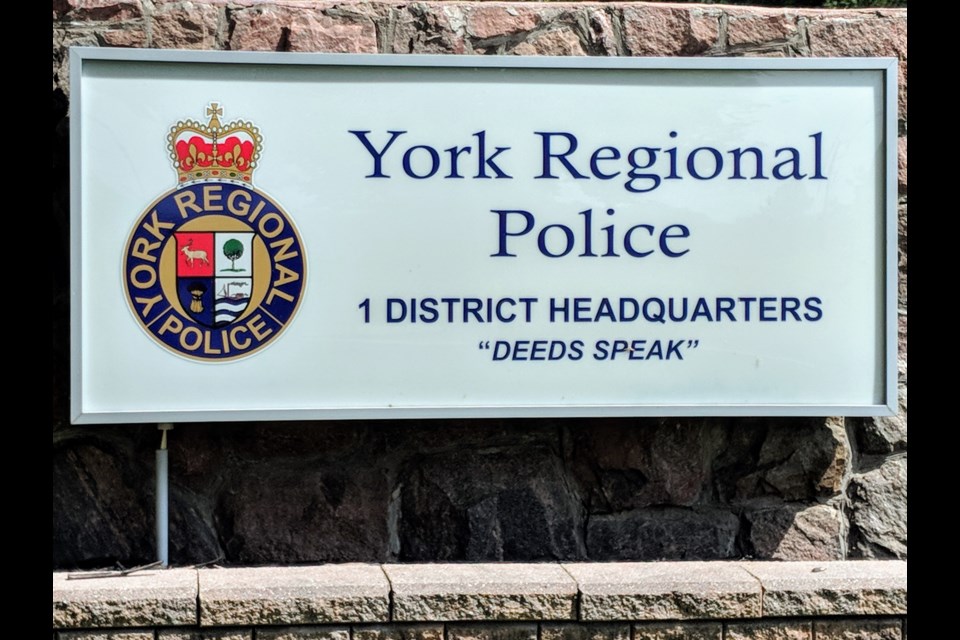Money, cannabis and rising crime dominated the discussion at the York Regional Police Services Board meeting Wednesday.
York Regional Police presented its pitch to the board for about $362 million in operational funding for 2019, about a 3 per cent increase over last year. The Regional Municipality of York’s new incoming council will vote on the police budget in early 2019.
The York police force says it faces increasing financial pressure due to enforcement of the recently passed Cannabis Act, the increasing number and complexity of the calls it receives, as well as uncertainty about the provincial funding it once relied upon.
“We don’t know if the current new provincial government supports grant-funding in policing. It’s a large problem if they don’t,” financial services manager Jeffrey Channell said, adding about $13.7 million in legacy grants could be in jeopardy. “Unfortunately, they’ve (Ontario government) missed a payment or stopped a payment that was scheduled for September 2018 around court security and prisoner transportation. I’m very concerned when the provincial government delays payments to municipalities.”
Over and above the core funding needed to maintain the force’s status quo, York police is asking for an additional $11.6 million to hire 53 new staff, purchase cannabis-related road safety supplies, upgrade information technology, and beef up investigative and air support divisions.
To support its request for additional funding for anticipated cannabis-related activity, the York force pointed to the research paper Cannabis: Public Health Challenges, by York Region Medical Officer of Health Dr. Karim Kurji.
That report states 30 per cent of York Region’s 914,000 adults aged 18 and over have used cannabis at least once in their lifetime; 22 per cent of the region’s 58,300 students aged 14 to 17 reported using cannabis in the past year and; one-third of York Region’s grades 11 and 12 students have smoked cannabis in the last year.
So far this year, there have been 4,739 cannabis-related incidents in York Region, more than three-quarters of which were criminal, York police statistics show. That represents a 7 per cent increase over the same period in 2017.
More generally, crime is up by a margin of about 3 per cent overall throughout York Region within the past year. However, certain districts are being hit with new policing challenges.
Newmarket’s No. 1 District has seen a large increase of 21 per cent year-over-year and 27 per cent over the last five years in violent crimes against people, such as assaults, robberies and theft, Channell said.
If approved, the 2019 budget will appoint four new officers in Newmarket’s criminal investigative bureau. No. 1 Division currently has eight officers serving Newmarket, two in Aurora, three in Schomberg, Nobleton and King, and two in East Gwillimbury.
The other 49 new policing hires would be assigned to cannabis-related workloads, the break-and-enter task force, and the mental health and support team.
York Regional Police Chief Eric Jolliffe emphasized to the board that the majority of the police budget is for salaries and benefits, or about 87 per cent, in much the same way as the nursing or teaching professions.
“When you have more people, it’s going to cost you more money,” Chief Jolliffe said. “My folks are busy, busy, busy. Not to raise the alarm bell, but since we began bringing our officers off the street and training them for cannabis, we’ve had an 118 per cent increase in break-and-enters, mental health calls are up 17 per cent, and No. 1 District (Newmarket) crimes against persons like robberies and assaults are up 21 per cent.”
Board member and York Region CEO and Chair Wayne Emmerson expressed frustration about the lack of provincial and federal funding, and a recent move by Ontario’s new Progressive Conservative government to quash additional taxing powers the region requested.
“We do not get the proper funding for what we’re doing,” Emmerson said. “The Province of Ontario is saying there is no money, they’re cutting their costs. So the only way we can tax now is through property taxes and that’s the only way we’re going to get funding.”
Vaughan Mayor Maurizio Bevilacqua echoed that sentiment.
“To expect money from the Province given the fiscal straightjacket they’re in would be kind of naive,” Bevilacqua said. “They’re not going to be giving out much. If anything, I can predict there will be cuts. This is not the type of government that’s handing out much.”
Regional council appointee and board member Khalid Usman said York Regional Police scores high marks for its work because people feel safer in the community than anywhere else. But he acknowledged more creative thinking is crucial to the funding crisis.
“We have to find other ways of generating the revenue. It’s difficult, but it can be done,” Usman said.
For her part, provincial appointee and board member Bang-Gu Jiang said it’s important to maintain the high quality of service York police provide to the community.
“Our business (policing) is not a money-making business, and most of the services the public receives they already consider that they’ve paid for through their tax dollars,” Jiang said. “However, in terms of efficiency and savings, we should look to find more efficiency on the investments we’ve already made.”
York Region taxpayers foot more than 90 per cent the police budget each year. If the York force’s budget is approved, residents can expect to see an extra $5 on their tax bill.
